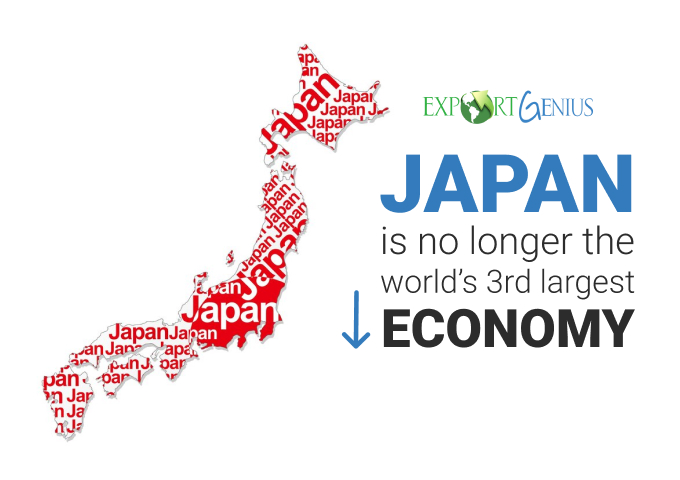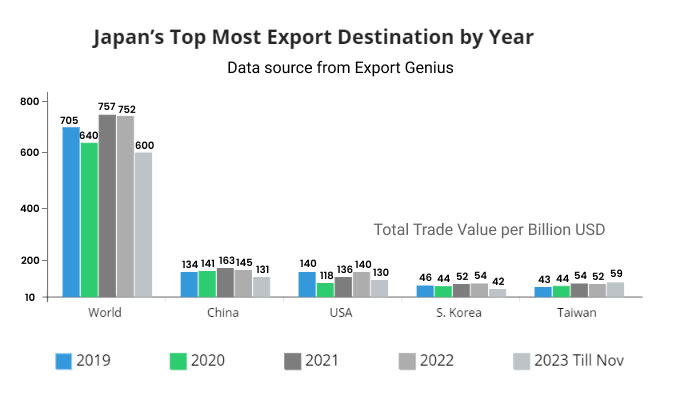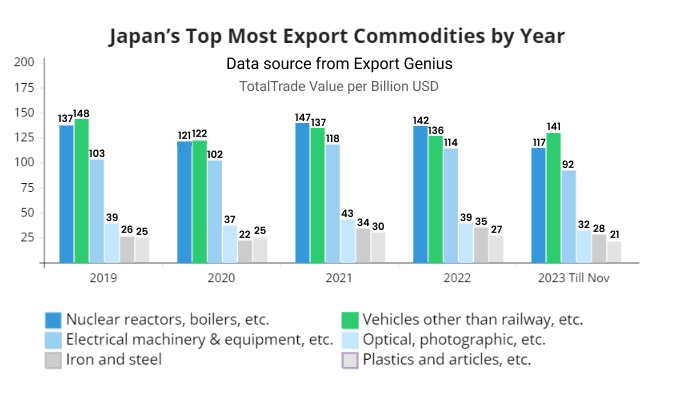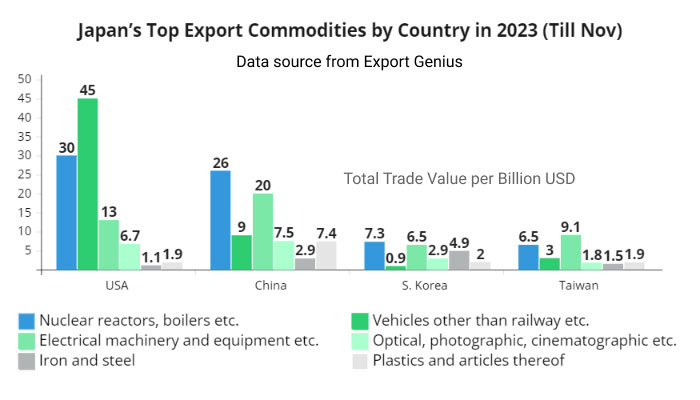Japan's Slips into Recession Indicates the Downward Trend for the Market
22 February 2024

From the ashes of World War
II, Japan’s constructive and strategic economic planning transformed into a
global powerhouse of innovation with state-of-the-art technology, strengthening
and leading the world in technological advancement and manufacturing. However,
the tag of the world’s 2nd largest economy in 2010 slipped to 3rd position, and
further deteriorating conditions of economic activity turned this position to
4th in 2024. The recession is considered one of the potential reasons for this
declining position, but the spirit of innovation continues to drive its journey
towards renewed prosperity.
As Japan’s economy delves into
recession, businesses start diversifying their supply chain by focusing on new
markets and the dwindling pillars of economic activities, along with losing
consumer demands and widening the gap in the international market. Let’s
understand how the recession affects the country’s exports globally.
Explore Japan’s Export
Dominance Globally
The mentioned table represents Japan’s topmost export destination for the last five years (till Nov) in terms of total trade value in billions of USD, and export data are covered with top trading partners of Japan, including the world. Thoroughly going through the table, it reveals that total exports to the world in 2019 were USD 704 billion, which recovered after battling with COVID-19 in 2021, but the growth was not sustained for a long time and resulted in an overall decline in the trade of USD 600 billion in 2023. Taiwan is the only major country for Japanese exports that has witnessed a continuous upward movement, except for a marginal downfall in 2020.

|
Year |
World |
China |
USA |
S. Korea |
Taiwan |
|
2019 |
705 |
134 |
140 |
46 |
43 |
|
2020 |
640 |
141 |
118 |
44 |
44 |
|
2021 |
757 |
163 |
136 |
52 |
54 |
|
2022 |
752 |
145 |
140 |
54 |
52 |
|
2023 Till Nov |
600 |
113 |
130 |
42 |
59 |
***Total Trade Value per Billion
USD
Japan’s Top Traded Commodities
Now, try to understand what
are the major commodities exported by Japan to the world with statistical data
for the last five years. Nuclear reactors, boilers, vehicles other than
railways, and electrical machinery and equipment are some of the commodities
whose trade value is more than USD 100 billion. The remarkable achievement of
getting back on track was witnessed in the year 2021, the year after COVID-19,
but the growth declined in 2022 and further declined in 2023, turning the
country’s economy into a recession.

|
Product |
2019 |
2020 |
2021 |
2022 |
2023 (Till Nov) |
|
Nuclear
reactors, boilers etc. |
137 |
121 |
147 |
142 |
117 |
|
Vehicles
other than railway etc. |
148 |
122 |
137 |
136 |
141 |
|
Electrical
machinery and equipment etc. |
103 |
102 |
118 |
114 |
92 |
|
Optical,
photographic, cinematographic etc. |
39 |
37 |
43 |
39 |
32 |
|
Iron and
steel |
26 |
22 |
34 |
35 |
28 |
|
Plastics and
articles thereof |
25 |
25 |
30 |
27 |
21 |
***Total Trade Value per
Billion USD
Let’s bifurcate the top most
exported commodities by country. If you go through the table, then you can find
the USA and China as major trading partners of Japan, and the trade value for
nuclear reactors, boilers, etc. is more than USD 25 billion with each country.
The highest single commodity traded is vehicles other than railways, etc., with
more than USD 45 billion. Look at the table for a more complete understanding.

|
Commodities |
USA |
China |
S. Korea |
Taiwan |
|
Nuclear
reactors, boilers etc. |
30 |
26 |
7.3 |
6.5 |
|
Vehicles
other than railway etc. |
45 |
9 |
0.9
|
3.0 |
|
Electrical
machinery and equipment etc. |
13 |
20 |
6.5 |
9.1 |
|
Optical,
photographic, cinematographic etc. |
6.7 |
7.5 |
2.9 |
1.8 |
|
Iron and
steel |
1.1 |
2.9 |
4.9 |
1.5 |
|
Plastics and
articles thereof |
1.9 |
7.4 |
2.0 |
1.9 |
***Total Trade Value per
Billion USD
Major
Reasons for Japan’s Recession
· A weaker Japanese yen was a key factor in the drop
to fourth place.
· Continuous shrinking population
· Geopolitical issues like Russia-Ukraine
conflict, China-Taiwan conflict & other issues.
· The global slowdown after COVID-19 and protectionist policies adopted by nations.
· Negligence in economic policies.
How
Can the International Market Be Affected by Japan’s Recession?
· Recession may increase the fluctuation rate of the
currency.
· Potential harm to global trade by disruption in the
supply chain.
· Reduce global demand.
Recession
may have a profound effect on the international market by reducing demand,
disrupting supply chains, and creating an unfriendly environment for
businesses, but constructive and comprehensive economic policies may revive the
economy faster than other methods.









